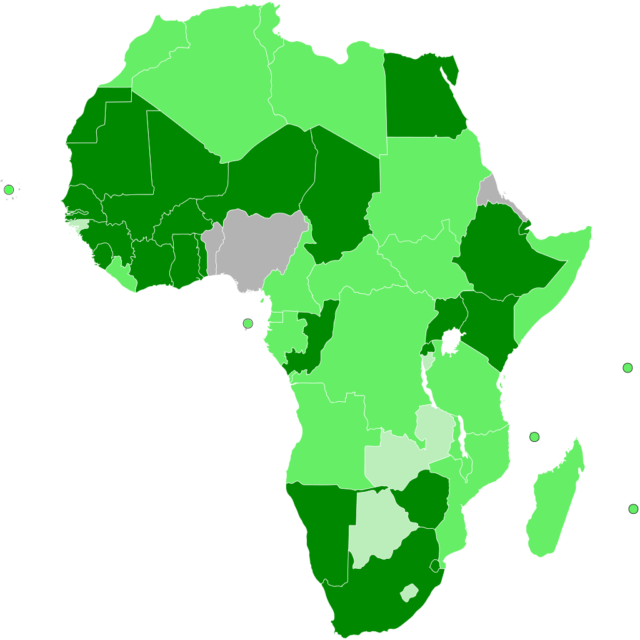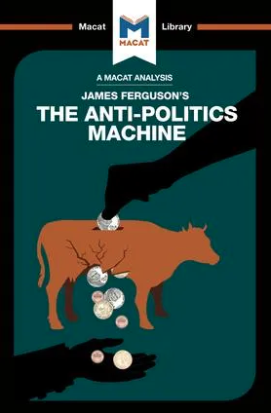Mansa Musa’s good intentions may be the first case in history of failed foreign aid. Known as the “Lord of the Wangara Mines”, Mansa Musa I ruled the Empire of Mali between 1312 and 1337. Trade in gold, salt, copper, and ivory made Mansa Musa the richest man in world history.
As a practicing Muslim, Mansa Musa decided to visit Mecca in 1324. It is estimated that his caravan was composed of 8,000 soldiers and courtiers — others estimate a total of 60,000 — 12,000 slaves with 48,000 pounds of gold and 100 camels with 300 pounds of gold each. For greater spectacle, another 500 servants preceded the caravan, and each carried a gold staff weighing between 6 and 10.5 pounds. When totaling the estimates, he carried from side to side of the African continent approximately 38 tons of the golden metal, the equivalent today of the gold reserves in Malaysia’s central bank — more than countries like Peru, Hungary or Qatar have in their vaults.
On his way, the Mansa of Mali stayed for three months in Cairo. Every day he gave gold bars to the poor, scholars, and local officials. Mansa’s emissaries toured the bazaars paying at a premium with gold. The Arab historian Al-Makrizi (1364-1442) relates that Mansa Musa’s gifts “astonished the eye by their beauty and splendor”. But the joy was short-lived. So much was the flow of golden metal that flooded the streets of Cairo that the value of the local gold dinar fell by 20 percent and it took the city about 12 years to recover from the inflationary pressure that such a devaluation caused.
Orestes R Betancourt Ponce de León, “5 Historic Examples of Foreign Aid Efforts Gone Wrong”, FEE Stories, 2021-06-06.
March 6, 2024
QotD: Mansa Musa’s disastrous foreign aid to Cairo
January 4, 2023
Sarah Hoyt on some of the dystopian futures we’ve avoided (so far)
Sarah Hoyt outlines a few of the grim future scenarios that appeared to be the future to people who earned a living writing about possible futures:
1 – World government.
To be fair, it seemed an absolutely sane and inescapable prediction for people who had seen the centralized nation states of the twentieth century consolidate. With faster communication, would come total union, right?I note Heinlein stopped believing this after his world tour. In fact in Friday he has a fractured USA.
That second vision is more likely. There are too many cultures in the world and too many competing interests to have a world government. Even on the administrative side, a world government might be absolutely impossible, unless it’s a nominal government and the sub-governments do everything really.
In which case, you know what? It’s no different than what we have, except we call any war a civil war.
The only people this idea still makes sense to are people who think they can change reality by changing the words.
Of course, just because there isn’t a formal world government doesn’t stop national governments and legacy media organizations from pretending that there is some supranational body whose directives they must always follow … at least when they want to do something the voters don’t want them to do. Lockdowns, anyone? Vaccine mandates? Social media censorship at the micro level? Oh, we have to do them because the WHO/UN/WEF/etc. insist.
2 – Overpopulation.
Yeah, I know what the population “counts” are, but we don’t have overpopulation. We don’t have any of the signs of overpopulation, and it’s becoming plainly obvious, country by country, locality by locality that there’s no overpopulation.Malthus was an unpleasant fatalist. he was also wrong. Humanity doesn’t keep reproducing like mindless rabbits.
To be fair, this makes perfect sense because we’re a scavenger species. For scavenger species the population curve is the bell curve, not an exponential climb.
It’s funny how third world governments can “accurately” report booming populations — at least partly because foreign aid from the west is often directly tied to those reports — yet many of them don’t even know how many civil servants they employ. And western governments and aid agencies just pretend to believe them.
3 – Total depletion of resources leading to the “rusty future” in a lot of eighties science fiction.
A lot of resources are in fact depleted, but we have found others This is something that the “Greens” seem unable to grasp. Humanity is a continuous depleting of resources, and discovering new resources and new ways to use them. For instance, given our population, I don’t think we have enough flint to knap for knives for all of us. It’s an obvious crisis.In the same way, do you think it’s even possible for all of us to have a horse? Our cities would be hip-deep in horse poo.
But we are the ape that adapts. Things change. And the future will be as shiny as we want it. Unless fashion calls for dull, of course.
If you’ve been educated in a zero-sum economic picture, then it’s difficult or impossible for you to recognize that when resources begin to run short and prices rise, individuals and companies look for more efficient ways to use the now more expensive resource or to consider substitutions. This is why economies who try to suppress normal market signals, like rising prices due to diminished supplies, end up far worse off … humans in aggregate are adaptable and will try to find alternatives when they can.
4 – The world isn’t a communist state, or filled with communist states.
There are some yes, but the ones there are are in obvious trouble, and only the propagandized and the ignorant believe it is a way to live, or a way that brings about paradise. In fact, most of today’s communists are merely wanting to reign in hell.
They know they’d unleash hell, they just think they’d be king.
As bad as it is that people are still fighting for this, it’s miles ahead of the status quo till the eighties, where people actually believed planned centralized states were better.
We still have a fight ahead of us, and we might still fail, but there will never be a whole-word communism. and those of use devoted to freedom will eventually win. It just will take probably more than my life. At least on a world-scale.
Among the governments most likely to resort to market denial (and autarky) are socialist and communist states. Central planning is one of the fastest methods to starving your population aside from total war. Central planners are always confident that they “know better” than filthy capitalists, and with proper “scientific” planning they can avoid all the “waste” that market societies produce. For a detailed look, consider the plight of poor, imaginary Wyatt, a factory manager under GOSPLAN in the old Soviet Union. If anything, Sev underestimates the economic disaster that Soviet central planning perpetrated.
5 – We don’t have some sort of central authority that contols all of something: genetics; who is arrested; etc.
A lot of places have crazy authorities, but not the whole world. we’re not enslaved by the Tech Lords (and what a pitiful lot those turned out to be) and the agencies trying to subjugate us are not all powerful, more along the lines of a bunch of venal chuckleheads. Annoying, with no morals and insane, but not all powerful. It could be worse.
It certainly could be worse, and useful idiots in western governments and legacy media are doing what they can to bring everything possible under tighter control, but as I’ve pointed out repeatedly the more a government tries to do, the worse it does everything.
December 22, 2022
It may have taken most of the year, but Canada finally figured out its Ukraine position
In The Line, Andrew Potter theorizes that the Canadian government finally “got it right” on Ukraine, but only after having exhausted all the other possibilities:

Operation Unifier shoulder patch for Canadian troops in Ukraine.
Detail from a photo in the Operation Unifier image gallery.
When Russia started massing troops on the border in Ukraine this time last year, Canada was one of the first Western countries to close its embassy in Kyiv, moving everyone to Lviv on February 12. Hours after Russia launched its illegal, insane, nihilistic, genocidal full invasion of Ukraine on February 24, all non-Ukrainian employees of our embassy scooted across the border into Poland.
For months after the invasion, that highly risk-averse attitude infected every aspect of Canada’s approach to helping Ukraine. Whether it was diplomacy (hesitant), military aid (slow and limited), financial support (inadequate) or straight-up moral fortitude (lacking), the Trudeau government made it clear that it would do the least amount necessary, while taking the most credit possible, in supporting Ukraine.
[…]
The weird thing about Canada’s foot-draggy-as-she-goes approach to helping Ukraine is how little sense it made politically, for both domestic and international audiences. Canada has one of the largest Ukrainian diaspora populations in the world. We were the first Western country to recognize Ukrainian independence in 1991. The deputy prime minister of Canada is half Ukrainian and has been a loud supporter of the country for years. Privately and publicly, our allies were pleading for us to do more.
Who knows what it was that finally shook some sense into the Trudeau government. Maybe it was Freeland, maybe it was a call from Uncle Joe Biden, maybe it was just a sense in the PMO that, having exhausted all other options, the only thing left to do was the right thing. Whatever it was, over the last three or four months, Canada is finally punching its weight on the global stage on the Ukraine file. In particular, we seem to have finally figured out that the best way to help is to provide the sorts of support that draws on our strengths.
So for example, while the handful of M777 howitzers we sent were certainly useful (and the ammunition we’re continuing to supply will be well spent) we’re never going to compete with the Americans or Brits when it comes to heavy arms supplies. That’s why, back in October, it was probably more helpful for us to send 400,000 pieces of winter gear and to provide a few million dollars worth of satellite communications to the Ukrainians through Telesat. And it was great to see Canada re-engage with its training commitments to the Ukrainian armed forces through the deployment of 40 combat engineers to train Ukrainian sappers in Poland, to complement our ongoing training of recruits in the U.K.
October 17, 2022
QotD: Julius Nyerere
When I worked for three years in the 1980s in the East African country of Tanzania, I was outraged by the quite unnecessary state of impoverishment and pauperism to which the policies of the long-time president, Julius K. Nyerere, had reduced the population. These policies – collectivisation of agriculture, destruction of commercial farming and the elimination of incentives for peasants to produce anything, one-party political control over every detail of daily life – were so obviously counterproductive of Nyerere’s repeatedly stated aim to develop his country economically and lift it from its poverty that I long concluded that he must be some kind of fool or intellectual incompetent. But it was I who was the fool.
One day, the not very difficult thought occurred to me that Nyerere’s stated aim was not the real aim, that the aim of his policies was not the economic development of the country or anything like it, but rather the maintenance of himself and his cronies in power. Once I made this simple assumption, I could see what should have been obvious to me from the first: that far from being a miserable failure, Nyerere was a brilliant and outstanding success. Not only had he maintained himself in power for more than twenty years with very little challenge, apart from an early attempt at a coup by the army, but he had successfully managed to present himself to the world as a man of outstanding principle: indeed, there are even now moves afoot by the Catholic Church, to which he was more attached even than he was to Kim Il Sung, to canonise him, notwithstanding his imprisonment of political opponents and his forced removal of the peasantry from where it was living into collectivised villages. One of his miracles was to have extracted huge sums of aid money from the willing dupes of Scandinavia and elsewhere, which disappeared in Tanzania as water through sand but was so essential to him in the maintenance of his power.
If the aim of politicians is the attainment of power, Nyerere was one of the most successful politicians of the twentieth century, and very far from the fool or incompetent that I had thought him.
Theodore Dalrymple, “Brexit Doesn’t Mean Brexit”, Law & Liberty, 2019-04-15.
September 21, 2022
QotD: Why postwar western economic and humanitarian “interventions” almost always failed
… it is a general truism that the majority of persons who run for office in North America and various European countries do so because they sincerely want to help and improve their communities/countries. However, in all of Africa and most of Asia, persons who seek public office do so for one purpose, and one purpose only: to steal everything that they can get away with. So when some ignorant, naïve, American shows up with buckets full of money, oblivious of the culture and the longstanding, entrenched, corruption, and with an announced intention to make the local community more like an American community, they are welcomed with open arms while suppressing their snickering. This also explains something where Americans exhibit willful blindness: other cultures don’t play fair. Honesty is seen as the trait of fools. Fools are to be taken advantage of. Especially in trade and diplomacy. Just look at China.
Prior to the Cold War, America’s interference in other countries’ internal affairs was practically nonexistent outside of the Caribbean where America’s preoccupation was with the stability in the region. What went on in Egypt, Thailand, Argentina, or Greece was none of our business, nor did we frankly care. However, having just survived the cataclysm of WWII, and the realization that Communism was a danger bent on world domination, and that each country that became Communist made that possibility much more likely changed that laissez faire attitude 180 degrees. Whereas NATO was formed for the purpose of deterring a military attack on Western Europe by the Soviet Union (the generals mentally fighting the last war as is always the case, not realizing that the war now was ideological and propagandistic rather than military), diplomats began to question how to best combat Communist insurgencies in the Third World. The arrived (wrong) conclusion was that the reason a country became Communist was because the dirt-poor people were so desperate that they became Marxists in order to improve their lives, so if the West helped poor countries economically Communists could not gain a foothold. As such, they ignored the fact that most Communist movements are organized and headed not by poor people, but by a cadre of power-hungry middle-class intellectuals.
As has been mentioned, the first approach was with foreign aid. The second was with military intervention, in Korea, Vietnam, Santo Domingo, Grenada, and Lebanon. Although such interventions were mostly successful, they carried a heavy price as American blood was spilled in foreign countries. America’s supposed allies hardly helped at all, including the citizens of the countries (Korea and Vietnam) that themselves were in danger of being conquered by Communist forces.
Armando Simón, “Schlimmbesserung“, New English Review, 2022-06-16.
September 2, 2022
Alliance For Peace (1951) North Atlantic Treaty Organization Promo Film
PeriscopeFilm
Published 14 May 202sProduced by NATO and the Signal Photographic Service of the U.S. Army, this black & white film is about the formation of NATO and its importance in the defense of the free world. Copyright 1951. The film features a score by William Alwyn. The film dates from the time when Gen. Dwight Eisenhower was supreme commander of NATO (1950-52), a post he left in order to run for President of the United States.
(more…)
June 21, 2022
“Schlimmbesserung is a lovely German word which means making something worse by trying to improve it”
In the New English Review, Armando Simón considers some of the oddities of American worldview that seem so often to make worse the very things they try to “fix”:
Americans’ ignorance of other countries, their cultures, their history and their geography is legendary and world renowned and the subject of countless anecdotes and jokes by foreigners. This ignorance is inexplicable, as it is not found in America’s northern or the southern neighbors, so it cannot be due to geographical isolation. It is also a fact that foreigners know more about America than Americans know of their countries. Or even their own.
It is also a paradox. One would expect logically that a country that is principally composed of immigrants and the descendants of immigrants would have an encyclopedic knowledge of other countries, as is the case with Britain, which had a world-wide empire. Not so.
And this may explain America’s unintentional policy of schlimbesserung, the worsening of something that it is trying to improve, or as Greene described it so aptly of an American character in one of his novels, “armored in his ignorance and good intentions”.
As an aside, let me also say that this naïve optimism — to put it charitably — has enabled foreign governments to easily steal diplomatic and military secrets with little trouble, according to Gordievsky’s KGB: The Inside Story of Its Foreign Operations from Lenin to Gorbachev. John Walker, an American traitor who spied for the Russians for 17 years once said in a public interview that Walmart guards a tube of toothpaste better than the Navy guards its secrets. He should know.
Many individual American philanthropists and government bureaucrats go energetically out in the world upon hearing of some terrible condition in some part of the world through the television, convinced that they, yes they, can personally correct the situation when in reality they have no idea of what the hell they’re doing, who they are dealing with, or what is really going on in that part of the world, nor of the cultural, historical, and geographical circumstances. Nor can they even speak the local language! They are simply confident that they will solve the problem. And so they will feel good about themselves (for example, there is no question in my mind that some dirt-poor African doctors, upon learning that some idiot Americans, obsessed with AIDS, were going to send millions upon millions of dollars in their countries “to combat AIDS”, and having very few actual cases of infected patients, simply falsified the statistics. Or worse.). It is as if they were hopscotching across a cultural minefield with an idiotic grin.
The cultural values that one takes so much for granted that one is not conscious of may not be present elsewhere. For example, Americans do not understand that many countries e.g., Greece, Ireland, tend to explain their present problems by blaming other countries (Turkey, Germany, England) over what happened centuries ago instead of actually solving the problems. People in other countries are backward looking in that their sights are rigidly focused on their past, whereas Americans’ eyes are always on the future (and which might explain why Americans are addicted to science-fiction) while being generally ignorant about their past.
Also, it is a general truism that the majority of persons who run for office in North America and various European countries do so because they sincerely want to help and improve their communities/countries. However, in all of Africa and most of Asia, persons who seek public office do so for one purpose, and one purpose only: to steal everything that they can get away with. So when some ignorant, naïve, American shows up with buckets full of money, oblivious of the culture and the longstanding, entrenched, corruption, and with an announced intention to make the local community more like an American community, they are welcomed with open arms while suppressing their snickering. This also explains something where Americans exhibit willful blindness: other cultures don’t play fair. Honesty is seen as the trait of fools. Fools are to be taken advantage of. Especially in trade and diplomacy. Just look at China.
May 30, 2022
Technocratic meddling in developing countries at the local level
One of the readers of Scott Alexander’s Astral Codex Ten has contributed a review of James Ferguson’s The Anti-Politics Machine. The reviewer looked at a few development economics stories that illustrate some of the more common problems western technocrats encounter when they provide their “expert advice” to people in developing countries. This is one of perhaps a dozen or so anonymous reviews that Scott publishes every year with the readers voting for the best review and the names of the contributors withheld until after the voting is finished:
But even if the project was in some sense a “failure” as an agricultural development project, it is indisputable that many of its “side effects” had a powerful and far-reaching impact on the Thaba-Tseka region. […] Indeed, it may be that in a place like Mashai, the most visible of all the project’s effects was the indirect one of increased Government military presence in the region
As the program continued to unfold, the development officials became more and more disillusioned — not with their own choices, but with the people of Thaba-Tseka, who they perceived as petty, apathetic, and outright self-destructive. A project meant to provide firewood failed because locals kept breaking into the woodlots and uprooting the saplings. An experiment in pony-breeding fell apart when “unknown parties” drove the entire herd of ponies off of cliffs to their deaths. Why, Ferguson’s official contacts bemoaned, weren’t the people of Thaba-Tseka committed to their own “development”?
Who could possibly be opposed to trees and horses? Perhaps, the practitioners theorized, the people of Thaba-Tseka were just lazy. Perhaps they “didn’t want to be better”. Perhaps they weren’t in their right mind or had made a mistake. Perhaps poverty makes a person do strange things.
Or, as Ferguson points out, perhaps their anger had something to do with the fact that the best plots of land in the village had been forcibly confiscated to make room for wood and pony lots, without any sort of compensation. The central government was all too happy to help find land for the projects, which they took from political enemies and put in the control of party elites, especially when it could use a legitimate anti-poverty program as cover. In Ferguson’s words, the development project was functioning as an “anti-politics machine” the government could use to pretend political power moves were just “objective” solutions to technical problems.
A local student’s term paper captured the general discontent:
In spite of the superb aim of helping the people to become self-reliant, the first thing the project did was to take their very good arable land. When the people protested about their fields being taken, the project promised them employment. […] It employed them for two months, found them unfit for the work, and dismissed them. Without their fields and without employment they may turn up to be very self-reliant. It is rather hard to know.
Two things stand out to me from this story. First, the “development discourse” lens served to focus the practitioners’ attention on a handful of technical variables (quantity of wood, quality of pony), and kept them from thinking about any repercussions they hadn’t thought to measure.
This is a serious problem, because “negative effects on things that aren’t your primary outcome” are pretty common in the development literature. High-paying medical NGOs can pull talent away from government jobs. Foreign aid can worsen ongoing conflicts. Unconditional cash transfers can hurt neighbors who didn’t receive the cash. And the literature we have is implicitly conditioned on “only examining the variables academics have thought to look at” — surely our tools have rendered other effects completely invisible!
Second, the project organizers somewhat naively ignored the political goals of the government they’d partnered with, and therefore the extent to which these goals were shaping the project.
Lesotho’s recent political history had been tumultuous. The Basotho Nationalist Party (BNP), having gained power upon independence in 1965, refused to give up power after losing the 1970 elections to the Basotho Congress Party (BCP). Blaming the election results on “communists”, BNP Prime Minister Leabua Jonathan declared a state of emergency and began a campaign of terror, raiding the homes of opposition figures and funding paramilitary groups to intimidate, arrest, and potentially kill anyone who spoke up against BNP rule.
This had significant effects in Thaba-Tseka, where “villages […] were sharply divided over politics, but it was not a thing which was discussed openly” due to a fully justified fear of violence. The BNP, correctly sensing the presence of a substantial underground opposition, placed “development committees” in each village, which served primarily as local wings of the national party. These committees spied on potential supporters of the now-outlawed BCP and had deep connections to paramilitary “police” units.
When the Thaba-Tseka Development Project started, its international backers partnered directly with the BNP leadership, reasoning that sustainable development and public goods provision could only happen through a government whose role they primarily viewed as bureaucratic. As a result, nearly every decision had to make its way through the village development committees, who used the project to pursue their own goals: jobs and project funds found their way primarily to BNP supporters, while the “necessary costs of development” always seemed to be paid by opposition figures.
The funding coalition ended up paying for a number of projects that reinforced BNP power, from establishing a new “district capital” (which conveniently also served as a military base) to constructing new and better roads linking Thaba-Tseka to the district and national capitals (primarily helping the central government tax and police an opposition stronghold). Anything that could be remotely linked to “economic development” became part of the project as funders and practitioners failed to ask whether government power might have alternate, more concerning effects.
As we saw earlier, the population being “served” saw this much more clearly than the “servants”, and started to rebel against a project whose “help” seemed to be aimed more at consolidating BNP control than meeting their own needs. When they ultimately resorted to killing ponies and uprooting trees, project officials infatuated with “development” were left with “no idea why people would do such a thing”, completely oblivious to the real and lasting harm their “purely technical decisions” had inflicted.
November 24, 2021
The Marshall Plan
The Cold War
Published 6 Jul 2019Our series on the history of the Cold War period continues with a documentary on the Marshall Plan and how the USA was able to help in the rebuild of the post-War World and gained valuable allies while doing it
Consider supporting us on Patreon: https://www.patreon.com/thecoldwar
November 22, 2021
QotD: Canadian values
During recent decades, our politicians have told us a sweet bedtime story about Canada being an exceptionally compassionate country, a world leader in multiculturalism and wonderfully generous to the poor countries. All of this expresses something called “Canadian values”. All lies.
Robert Fulford, quoted in “Canada takes a new look at ‘fable’ of its image”, New York Times, 2005-05-25. (Link updated thanks to MILNEWS.ca in the comments.)
July 15, 2020
QotD: State and private charity
Some social and political analysts regard private help as a bad thing. They speak of the “problem” of food banks, and of America’s “miserly” support for poorer countries. In fact food banks are a solution, not a problem. Private generosity has leapt into the breach to help tide people over temporary problems. The great majority of food bank users do so only once.
Similarly with US aid to poorer countries. The United States is regularly berated for being very low on the list of aid givers, but this only applies to government-to-government aid. Once the private contributions made by Americans to people in poorer countries are counted in, the US rises to the top. In fact US private help is better spent, usually going to people to spend in towns and villages in the local economy, rather than on gold palaces and white elephant steel mills in the desert.
Part of this mismatch arises from the fact that these analysts seem to wear spectacles that admit only light of a political wavelength and ignore private generosity. The latest victim of this myopia is the “bank of mom and dad.” It is assumed to be a bad thing that young people should turn to mom and dad to help out with deposits and mortgages.
“Richard”, “Is Private Help a Bad Thing? – Political Spectacles of the Left”, Continental Telegraph, 2018-04-02.
February 7, 2020
QotD: The negative economic and human value of foreign aid
I’d like nothing better than to be proven wrong, but I’m gloomily confident that my prediction of failure will be verified. History and sound economics both warn that foreign aid is far more likely to harm than to help economies.
During the past four decades, Western governments have lavished on Africa nearly a half-trillion dollars in aid. But to no good effect. Everyone agrees that Africans remain desperately poor.
Academic studies confirm aid’s ineffectiveness. In his celebrated 2001 book, The Elusive Quest for Growth, former World Bank economist William Easterly carefully reviews aid’s history and concludes that it is one of abject failure.
Indeed, many studies find that aid harms economies. For example, University of Regina economist Tomi Ovaska, writing in the Cato Journal, finds that “a 1 percent increase in aid as a percent of GDP (gross domestic product) decreased annual real GDP per capita growth by 3.65 percent.”
The reasons for this dismal record should be plain to anyone with a rudimentary understanding of economics. Failure of economies to develop is not because of lack of resources. Instead, it’s because of overbearing and corrupt governments, as well as to the dysfunctional social and cultural institutions that keep such governments in power and that are themselves fostered by such governments.
As long as a country is cursed by a malignant government and dysfunctional institutions, no amount of foreign aid will help it.
Don Boudreaux, “Faulty Band-Aid”, Pittsburgh Tribune-Review, 2005-06-18.
October 4, 2019
Foreign aid now an issue in the federal election
The Milk Dud actually said something worthwhile on the campaign trail the other day:

Andrew Scheer, paid tool of Big Dairy, chugs some milk during a Press Gallery speech in 2017. I’ve called him the “Milk Dud” ever since.
Screencapture from a CTV video uploaded to YouTube.
Andrew Scheer’s announcement that a Conservative government would cut foreign aid by 25% has been met with the usual wailing and gnashing of teeth by the out-of-touch elites.
Yet, it’s a policy that all Canadians can support because it will benefit all of us.
As I’ve said many times, the Canadian government is called “Canadian” for a reason.
It exists to serve the Canadian People, not to serve foreign, often corrupt, countries.
When we have such serious problems here at home, including a growing opioid epidemic, veterans who are homeless and struggling, and many Indigenous communities that lack access to good housing and even clean drinking water, then it’s obvious to everyone that we need to focus our resources here at home.
Personally, I would like to see all foreign aid (aside from disaster relief) eliminated and redirected towards Canadian citizens.
Still, the Conservative proposal has (along with earlier calls by the PPC to end all foreign aid) finally shifted the conversation around foreign aid, and will help wake up many Canadians to the reality that a large amount of our tax dollars are given away to foreign countries while Canadians here at home are suffering.
It’s appalling that the Canadian government sends money to foreign regimes (where the money is often appropriated by corrupt leaders and used for things very different than aiding the poor and destitute) while First Nations communities here in Canada still lack basic drinking water and sanitation facilities.
June 22, 2019
The African Continental Free Trade Area (AfCFTA)
Alexander Hammond explains why a free trade deal among many African nations is good news for the United States and other non-African nations:

2018 map showing the African countries involved in the African Continental Free Trade Agreement.
Dark green indicates ratification, medium green are countries that signed in March 2018, and light green are countries that signed in July 2018 but did not ratify the agreement immediately.
Map by Themightyquill at Wikimedia Commons.
The poorest continent in the world is about to lend a hand to the United States. Last week, Africa implemented the world’s largest free-trade area, and that’s great news for American foreign policy. Back in December, U.S. National Security Advisor John Bolton unveiled a plan for the Trump administration’s titled the “Africa Strategy.”
The plan is simple — the United States will give less aid to Africa, instead prioritizing enhancing America’s “economic ties with the region.” Now that many African nations have unified under a single market, trading with the continent will become far easier — and a trade deal between the United States and Africa would help out everyone involved.
Streamlining Trade
The African Continental Free Trade Area (AfCFTA) trade deal officially came into force on May 30, a month after it reached the twenty-two-nation threshold needed to do so. Now, tariffs on 90 percent of the goods traded among AfCFTA member states will be removed — a move that, according to the UN, will boost intra-African trade by 52 percent in only a few years.
Given the United States’ new plans for the continent, the AfCFTA’s member states aren’t the only economies that will reap the benefits of an African single market.
A key component of the Trump administration’s Africa Strategy is to advance “U.S. trade and commercial ties” with Africa by creating “modern comprehensive trade agreements.” A single African market will be a far simpler trade partner for America. Now, only one set of trade deals will need to be negotiated with the AfCFTA — as opposed to fifty-five intricately-crafted trade deals with each small African economy. The U.S. Trade Representative has even released a report noting how time-consuming and costly it is to negotiate trade deals with each African nation. Because trade deals are long and expensive processes, creating a solitary trade deal with the AfCFTA will keep more money in the U.S. government’s purse.
March 25, 2019
QotD: Village life
I hate rumor. Perhaps I hate it more because I grew up in a village.
The people who imagine villages are idyllic and every person in it loves the other like a brother or sister, have no knowledge of people — or reality. Sure, in many villages in isolated places, most of the people there are related to some degree. This was not true where I grew up, because the village was already in the process of exploding into a large-city suburb. It wasn’t visible to me as a child, because it was so slow, and newcomers still took years to integrate, but it it had been going on for so long that the appellation of “aunt” given to any grown woman by any child was just courtesy, not truth. Still, had we been all related, people who imagine that makes for harmonious living must have been only children and the children of only children.
No, never mind, I’m being silly. Those people are actually enormous racists and oikophobes. Hating their own home, they imbue places far away, particularly those inhabited by people who tan more than they do, with the qualities of heaven. They also in the process make those people-who-tan (or as I always think when I’m the object of this type of thought, and yes, I am, it’s what enables them to think themselves my intellectual superiors a-priori “Little brown peoples”) less than human. They (we) are not people with our own agency, and all the virtues and vices of mankind, but sort of little pets, perfect, well behaved and needing both the protection of our masters, the pale enlightened, and their pat on the head for how good we are. (Most of the left’s ideas on “defeating colonialism” envision themselves as benevolent colonial masters. In fact, the colonialism of Marxist ideas in Africa is what has made it hell on Earth, far worse than any colonial overseers could do. By turning their best and brightest into Marxist apostles at our “finest universities” they get to send these ideas back to Africa. There was some idea they would flourish there among people unsullied by greed and the wish to succeed individually (yes, it’s that racism again. It is inherent in the left’s contrived “celebration” of black people, Kwanza, which is really a celebration of socialist principles. And no, is in no way African. It was invented in the US. For one there isn’t such a thing as an “African” holiday. The continent is as or more varied than Europe (because transport was near impossible for most of its existence, tribes and villages were very isolated indeed.)) It didn’t. Instead it has made Africa worse than ever before. And this was done by turning its favorite sons, its brightest sparks into poison pills. Colonialist Marxism is appalling and responsible for the deaths of millions. As is Marxism everywhere.)
Sarah Hoyt, “Painted All In Tongues”, According to Hoyt, 2017-03-20.







